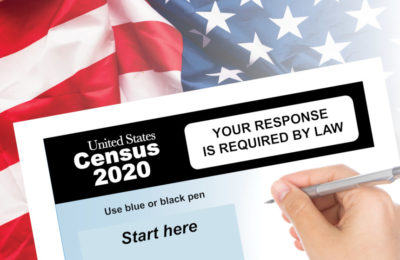The Census: Myths vs. Facts
It happens every ten years in the United States, but it’s an idea almost as old as civilization itself. We’re talking about the census, which is in simplest terms the counting of the population. However, the results of the census have great significance for communities in the United States. Indeed, some conspiratorially-minded parties have tried to paint the census as something sinister as opposed to its actual role in society. Here are three myths and three facts about America’s head-count.
Fact #1: Census Day is April Fool’s Day

Since 1930, the official Census Day is April 1st. No kidding. That’s the day by which all questionnaires need to be mailed out to every household in the United States. While different countries have different definitions, the census here tries to count the “whole number of persons in each state,” as outlined in the second section of the Fourteenth Amendment.
Myth #1: The Census is Unconstitutional
A fringe notion is the idea that the census is an infringement on your rights and, therefore, unconstitutional. The census is indeed constitutional because it’s in the . . . wait for it . . . Constitution of the United States. You can find it in Article 1, Section 2, where the document ties the population count to both taxation and representation.
Fact #2: The Thirteenth and Fourteenth Amendments Also Changed How the Census Worked
The original language of the census section of the Constitution distinguished between “free persons,” “persons bound in service,” and “all other persons.” The Thirteenth Amendment abolished slavery, and the Fourteenth codified “equal protection,” which invalidated the differences based on “free” and “bound.”
Myth #2: You Have to Disclose Your Political Party and Your Religion
That’s a common misconception, but it’s simply not true; the Census Bureau will, however, ask for your telephone number. You can find a list of all of the actual questions here.
Fact #3: You Can Face Penalties for Not Responding

The census is a pretty serious event in terms of American democracy. Since things like the levying and distribution of tax dollars and the determination of Congressional representation are directly tied to taking an accounting of the population, there are mechanisms in place to compel citizens to answer honestly. Title 13 of the United States Code, which covers the U.S. Census, outlines this. You are possibly subject to a fine if you don’t answer (or your head of household doesn’t answer for you); you face steeper fines if you willfully answer questions incorrectly, including possible prison time based on intent.
Myth #3: President Obama Removed the Citizenship Question

A conspiracy theory made the rounds in 2019 asserting that President Barack Obama took a citizenship question off of the census. This falsehood was introduced on right-wing internet and radio sources before making its way to Fox & Friends via Rush Limbaugh. In fact, it has been almost 70 years since any question of citizenship has been on the census. The Trump administration tried to add a citizenship question to the 2020 census; however, after legal challenges and objections from both the public and members of Congress, the administration backed down from adding the question in July of 2019.
Featured image: Shutterstock